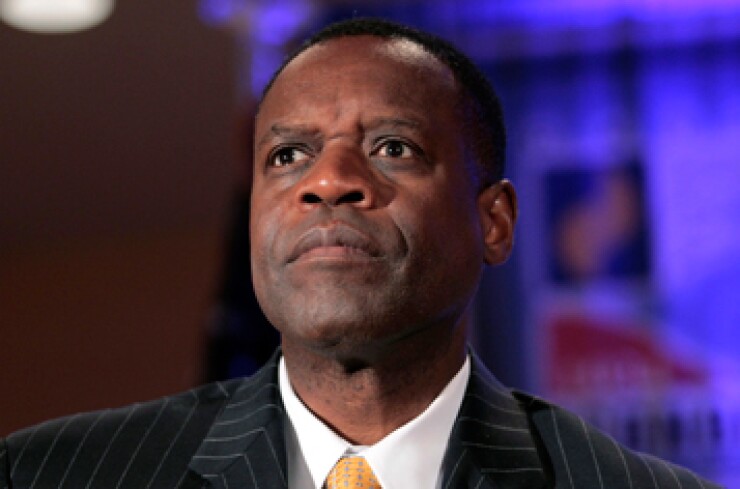
CHICAGO — Barring 11th-hour settlements with bond insurers, Detroit today begins justifying its plan to exit the largest municipal bankruptcy in the country.
U.S. Bankruptcy Judge Steven Rhodes will preside over the plan confirmation trial, which comes just 13 months after the city filed for Chapter 9 to restructure its debt. It will determine if Detroit can carry out its blueprint to shed roughly $7 billion of debt and invest $1.5 billion into a 10-year revitalization effort.
Rhodes has set aside dates through mid-October for the plan confirmation hearings.
Bond insurers Syncora Guarantee Inc. and Financial Guaranty Insurance Co. remain the two major opponents to the city's confirmation plan. Together they wrap or hold just under $1.5 billion of certificates of participation and related interest-rate swaps.
Since Emergency Manager Kevyn Orr took Detroit into bankruptcy in July 2013, the city has struck deals with most of its labor creditors and bondholders. That means the closely watched case will likely avoid setting legal precedents on treatment of general obligation and special revenue bonds in Chapter 9.
But the city's effort over the next few weeks to justify as fair under Chapter 9 rules its plan to pay retirees more than bondholders is being closely watched by municipal finance experts. The battle over the city's lawsuit to repudiate the $1.5 billion of certificates of participation, however, still could set legal precedent, as could Syncora's appeals on five separate rulings throughout the case.
Detroit's Jones Day attorneys are expected to call dozens of experts and city officials to prove the confirmation plan is fair and feasible. The proposal is anchored by the so-called "grand bargain," which features a stated $816 million in contributions for pensions raised from the state an non-profits, while protecting the the city's prized fine art collection in the Detroit Institute of Arts museum.
Under the plan, general employee retirees face 4.5% cuts to their pensions and the elimination of cost-of-living-adjustment increases, while police and fire will see no cuts and modest COLA cuts.
Unlimited-tax general obligation bondholders have agreed to a 26% haircut — a lower hit than Orr's original call for a 90% haircut. Limited-tax GO holders have settled for a 66% cut. The city most recently struck a deal with holders of $5.3 billion of water and sewer revenue bonds, which featured a tender offer at various prices in return for the bondholders' promise to approve the plan.
Syncora, FGIC and holders of the city's $1.5 billion of certificates, issued in 2005 to fund the city's two pension systems, would be crammed down for less than 10 cents on the dollar if Rhodes approves the confirmation plan. The city and the insurers reportedly met throughout the holiday weekend in a last-minute bid to reach an agreement. Barring a settlement, the insurers have promised to fight the city — and appeal if they lose — based largely on the legal argument that the plan violates the bankruptcy code because it discriminates against financial creditors in favor of retirees.
As well as its various legal objections, Syncora has challenged the grand bargain as a deal crafted by federal mediators who, driven by their own agendas, acted illegally by openly favoring one creditor class — the retirees — over others. Rhodes last week granted the city's request to strike that argument, and he scolded the insurer for "scandalous and defamatory" allegations of the mediators. Syncora's attorneys now have until Sept. 12 to show why the firm should not be sanctioned for making the argument.
Several issues remained outstanding as the trial approached.
They include a possible deal with adjacent counties to create a new authority to take over the water and sewer department as well as Rhodes' ruling on Syncora's challenge to the unlimited-tax GO settlement.
Rhodes could rule that the confirmation plan fails the key tests of fair and feasible, and send the city back to the drawing board to draft another proposal. If he approves the current blueprint, the ruling will be the first step toward realizing whether the plan is strong enough to help the city avoid returning to the bankruptcy court with another Chapter 9 filing in the future, a scenario that some observers and attorneys have already dubbed "Chapter 18."





